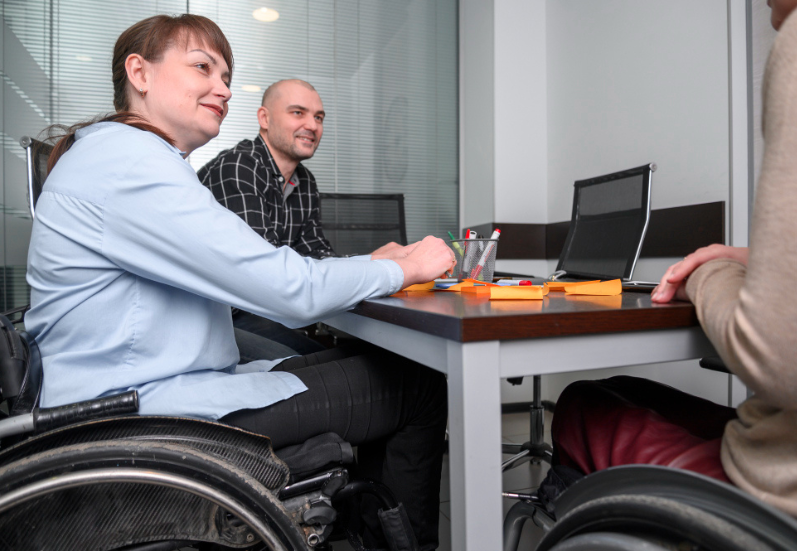
Filing for disability benefits? Man, it’s not as simple as just filling out some forms.
Even a tiny slip-up—maybe a missed paper or a misunderstanding—can slow you down or stop your claim dead in its tracks.
Tons of people get stuck because they don’t really get how this stuff works. But hey, most mistakes are avoidable if you know the ropes.
Especially in cases of disability, the mistakes can massively impact your claims. So, it is better to know them to avoid making mistakes in court.
So, if you are wondering, “How to avoid disability claim mistakes in legal cases?” I have got you covered.
In this blog, I am going to explore the core intricacies of disability claims by highlighting what they actually are, common mistakes, and how to avoid them.
So, keep reading to know more!
How To Understand What Disability Actually Is?
This one’s a classic. Lots of people think, “Oh, I have this condition, so I qualify.” But it’s not always that straightforward.
A disability, legally speaking, is any physical or mental condition seriously limiting major life activities—like working, walking, talking, or basic self-care.
But—and here’s the kicker—it’s different depending on the disability type.
Physical problems like paralysis or chronic illness don’t get judged the same way as mental health conditions—say, anxiety or depression.
Intellectual disabilities come with their own rules, too. And, not knowing the employer’s duty to accommodate people with disabilities means a lot of claims get denied before they even get looked at properly.
Also, heads up: employers are supposed to provide reasonable accommodations for employees with disabilities (according to the law).
What does “reasonable” mean? Well, that changes, but it’s something to keep in mind for your claim.
How To Avoid Disability Claim Mistakes?
Given that there are many disability claim mistakes, knowing them can help in avoiding them the right way. So, here are some of the common mistakes to avoid—
1. Incomplete Or Inaccurate Medical Documentation
Your medical records? Absolutely huge for your claim. They’re basically the proof that your condition affects your everyday life.
If your paperwork’s missing info or outdated, the whole thing can stall or get knocked back.
I’ve seen people send half-done files or old reports that don’t tell the full story. For instance, simply stating a diagnosis of “arthritis” without showing how it limits your ability to work, walk, or care for yourself may not provide enough support for your claim.
The folks reviewing your claim want to see the timeline of your diagnosis, treatments, symptoms—how everything actually impacts you.
And just dumping in a note that says “arthritis”? That’s usually not enough.
You need to spell out what that means day-to-day—can’t walk, can’t dress yourself, can’t work a full day? That kind of detail matters a lot.
Also, specialists can provide way stronger evidence than just your regular doctor. The more specific, the better.
2. Missing Important Deadlines
Deadlines in disability claims? They don’t mess around. Miss a filing date, or an appeal deadline, and it can mean instant denial or you losing your right to challenge decisions.
A lot of folks forget these or just don’t take them seriously enough.
If you think you’ll miss a deadline, don’t ignore it—ask for an extension or at least notify the agency.
Being organized with your dates—like, really organized—can save your claim. Just trust me on this.
3. Failing To Appeal A Denied Claim On Time
Hearing “your claim is denied” blows. But it’s not game over. You can appeal—and it’s actually pretty common for appeals to succeed.
The catch is, time is tight. Usually 30 to 60 days to get your appeal in once you get the denial letter. Miss that, and your chances vanish.
Why do claims get denied? Maybe missing medical proof, paperwork errors, or unclear info. Most of that can be fixed if you’re quick and thorough.
So when you appeal, send in new docs, clarify stuff, and double-check everything’s included. Don’t wait.
4. Ignoring The Importance Of Legal Representation
Some people think, “Eh, I can figure this out myself.” And maybe you can, but often, you won’t.
Disability claims aren’t exactly a walk in the park—they’re packed with confusing legal details.
Having a lawyer on your side can make a huge difference. They’ll make sure your forms are right, deadlines met, and arguments solid.
Think of it as having an expert navigator who knows the tricky paths.
5. Misunderstanding The Impact Of Social Media And Public Statements
Your social media? Yeah, it’s fair game these days. Adjusters and legal folks check it out and compare what you post with your claim.
Even a silly pic of you at a party or talking about “feeling better today” can raise suspicion.
It might seem harmless, but it can contradict your disability claim and cause doubt. Also, just don’t chat about your ongoing claim online—forums, groups, whatever.
Best move? Stay tight-lipped online while your case is active. Better safe than sorry.
6. Not Hiring A Lawyer For The Disability Claim Case
Even though disability claim cases seem easy and simple, there are actually diverse legal intricacies in them.
So, navigating through this alone can be overwhelming and exhausting. That’s where your lawyer comes into play.
With their expertise, legal knowledge, and years of experience, they can easily simplify the legal complexities. So, it becomes easier to understand the case and walk through the process.
Moreover, the lawyer can represent you in court and fight for your rights. In addition to this, your lawyer can negotiate the claim on your behalf. So, you get the maximum claim out of the case.
And, not hiring a legal support or a lawyer can make the process difficult and mentally draining. So, it is better to hire a responsible and experienced lawyer to handle your disability claim case.
Avoiding Disability Claim Mistakes In Legal Fights
Look, disability claims aren’t just about paperwork or money—they’re about keeping your dignity and peace of mind.
The process isn’t fun, but knowing what’s what and staying on top of things helps a ton.
Get your documents lined up, don’t miss deadlines, and if needed, bring in someone who knows the ropes. A good claim means you’re fighting for your future—and that’s worth it.











0 Reply
No comments yet.